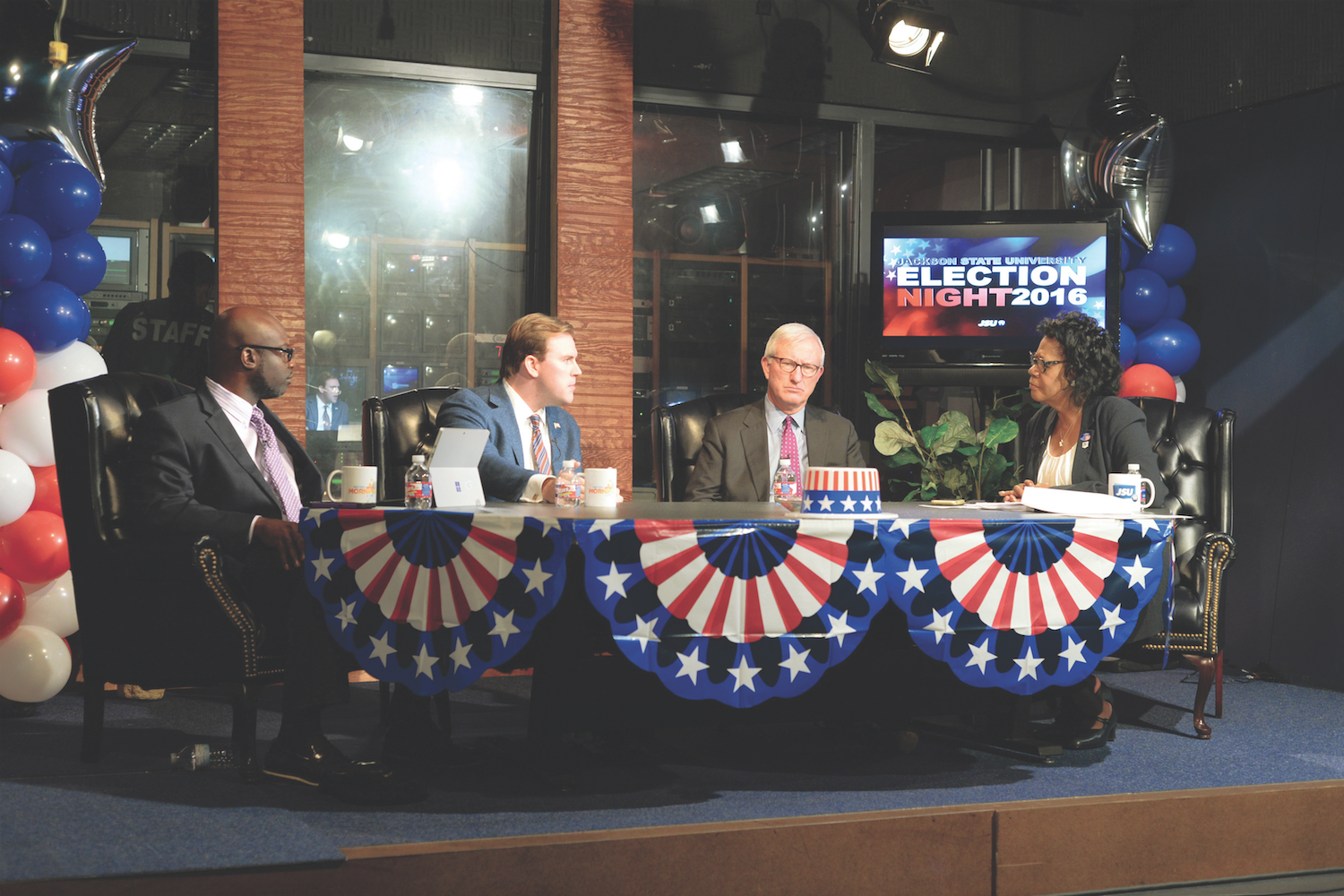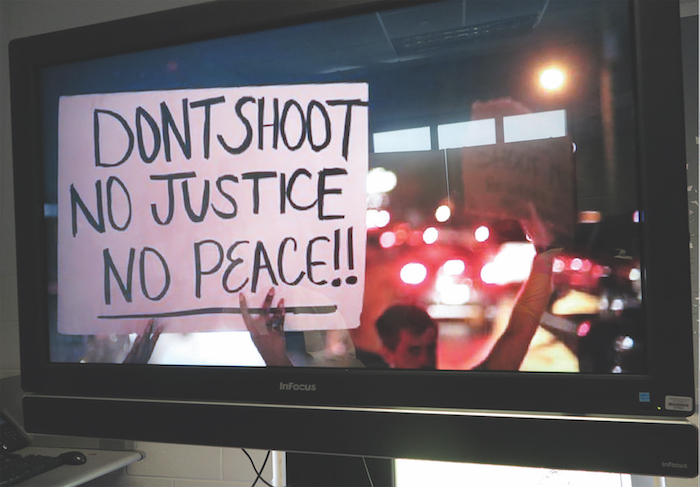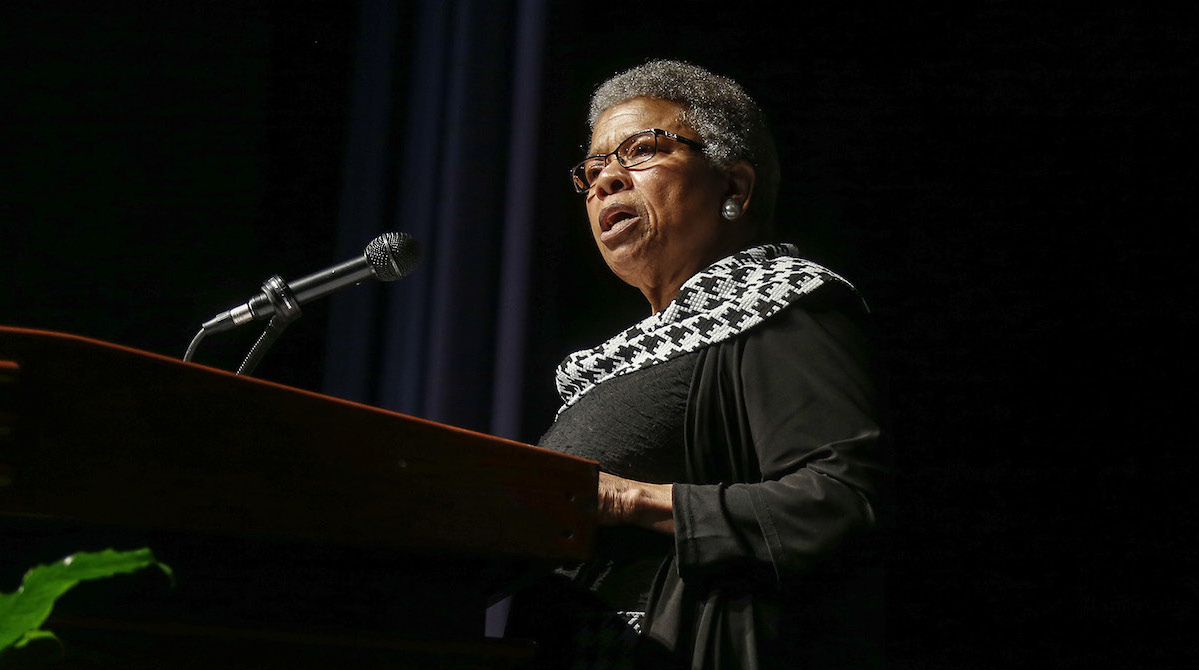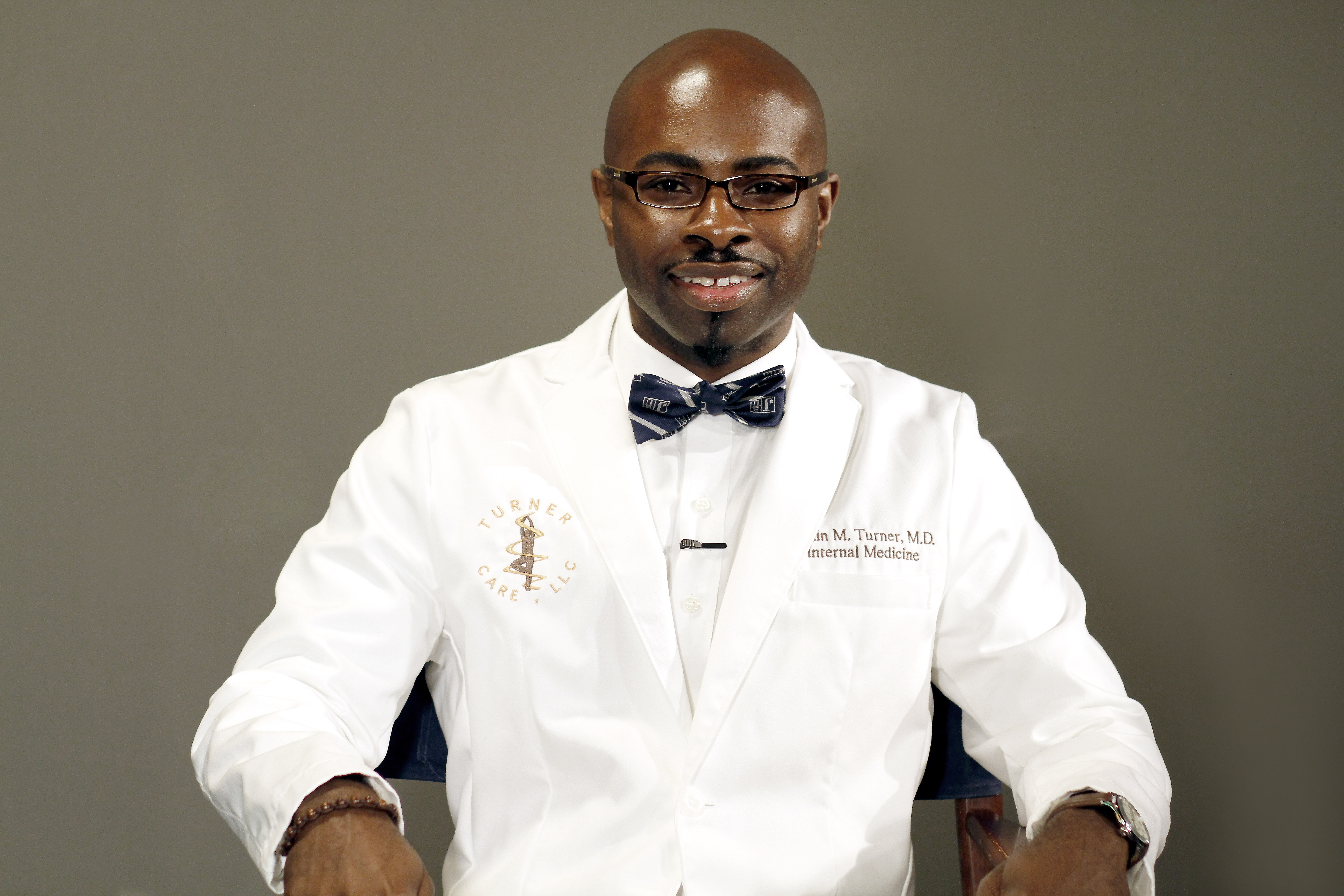[vc_row type=”” top_margin=”none”][vc_column type=”” top_margin=”none” width=”1/1″][vc_column_text]
On October 9, 2018, Mayor Chokwe Lumumba presented a proclamation

Henderson, DURP Ph.D. student; Roosevelt O. Shelton, Ph.D., interim dean for the College of Public Service;
Robbie Smith, DURP Ph.D. student and Biqi Zhao, DURP Ph.D. candidate; Top row L to R: Mary Elizabeth
Gilbert-Manogin, DURP Ph.D. student; Dr. Talya D. Thomas, DURP assistant professor; and Loretta Johnson,
M.A., DURP alumna. Charles A. Smith/JSU
for National Planning Month to the interim dean of the College of Public Service, Dr. Roosevelt Shelton.
Shelton says, “We are passionate about serving the community of Jackson and we are proud of our recognition as Mississippi’s urban university. Our students are completing our programs and assuming roles in the community as leaders and planners and that makes us exceptionally honored of the work we do each day.”
The goal of National Planning Month is to maximize the safety, health and economic well-being for all residents. JSU has an esteemed accredited program located at the downtown campus on 101 Capitol Street. Alumni of the program pursue careers in city, county and federal government, as well as various entities of the private sector.
[/vc_column_text][/vc_column][/vc_row][vc_row type=”” top_margin=”none”][vc_column type=”” top_margin=”none” width=”1/1″][vc_empty_space height=”32px”][/vc_column][/vc_row][vc_row type=”” top_margin=”none”][vc_column type=”” top_margin=”none” width=”1/1″][vc_separator_pr style=”default” top_margin=”none”][/vc_column][/vc_row][vc_row type=”” top_margin=”none”][vc_column type=”” top_margin=”none” width=”1/1″][vc_empty_space height=”32px”][/vc_column][/vc_row][vc_row type=”” top_margin=”none”][vc_column type=”” top_margin=”none” width=”1/1″][vc_column_text]
Public health alums call for access to medical care,

said the public and policy-makers must better understand the message of prevention. L.A. Warren/JSU
quality education
During National Public Health Week recently, several alumni from JSU’s School of Public Health (SPH) touted the importance of their profession and said a lack of access to medical care and failure to provide quality education are among the most pressing issues facing Americans.
A half-dozen panelists gathered inside the Jackson Medical Mall to display their solidarity and declare themselves vital agents of change. The healthcare colleagues said it’s time for the state and nation to combat social determinants of health, such as alcohol use, unprotected sex, smoking and injection drug use.
Dr. Nakeitra Burse, a grant writer for SPH, said unless the nation provides access to quality healthcare, it’s choosing to become complicit in “the perpetuation of chronic illnesses.”
Panelist Dr. Amy Radican-Wald, a senior policy analyst for the Center for Mississippi Health Policy, said she believes that neither the public nor policy-makers fully understand the value of preventing diseases. “We still need to work on our messaging and let everyone know the value of healthcare and how it connects to the bigger picture.”
Christopher Cox, director of youth programming for Teen Health Mississippi, said, “We have to do a better job and go out to communities and determine what the needs are and adopt programs to address those needs.”
On another matter, panelists debunked an argument that a public health degree is important only if an individual is also a practicing clinician. Burse said, “Both professions (practicing clinicians and public health professionals) are very much needed, but I think that public health brings a completely different spin on the healthcare setting. Whereas, a physician may tell you to go home and lose 10 pounds, the public health professional will help you walk through losing those 10 pounds. So, then we can work in tandem with the clinicians.”
[/vc_column_text][/vc_column][/vc_row]









Leave a Reply